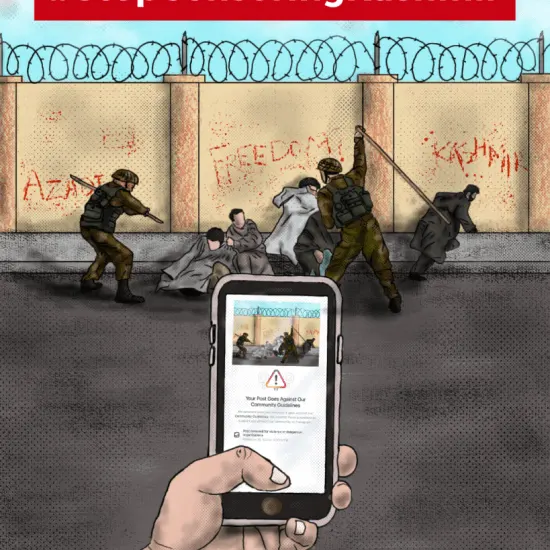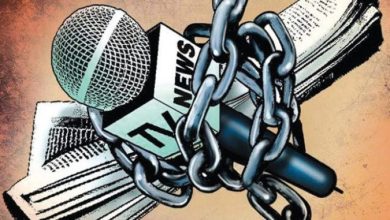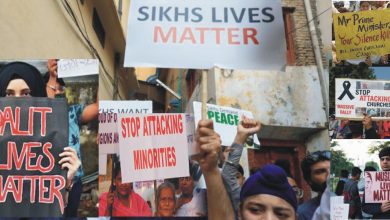Digital siege in IIOJK: A human rights crisis hidden behind internet blackouts
#DigitalsiegeinIIOJK
 Islamabad: People living in Indian illegally occupied Jammu and Kashmir (IIOJK) have long been denied their fundamental right to access information, a situation exacerbated by frequent internet disruptions in the territory.
Islamabad: People living in Indian illegally occupied Jammu and Kashmir (IIOJK) have long been denied their fundamental right to access information, a situation exacerbated by frequent internet disruptions in the territory.
According to Kashmir Media Service, these restrictions have profound implications for the Kashmiri population, hindering their ability to communicate, share vital information, and engage in meaningful dialogue about their rights and aspirations. The Vienna Declaration, adopted at the World Conference on Human Rights in 1993, emphasizes the importance of the right to seek, receive, and impart information as a crucial component of human dignity and democracy.
According to a special report issued by KMS, in connection with the observance of International Day for Universal Access to Information on September 28, each year serves as a reminder of the global commitment to ensure that all individuals can access information freely. In IIOJK, however, this ideal remains elusive, as ongoing restrictions not only stifle public discourse but also inhibit the region’s social and economic development. The denial of access to information is not merely a local issue; it undermines the principles of human rights and democracy that the international community strives to uphold.
It stated access to information is a fundamental human right and a cornerstone of democratic societies. The Vienna Declaration emphasizes the importance of access to information as a prerequisite for the realization of other rights, including the right to freedom of expression. In the context of Kashmir, this right becomes even more crucial as the region grapples with a long-standing conflict, human rights violations, and a struggle for self-determination.
The situation in Kashmir is multifaceted, involving historical grievances, territorial disputes, and ongoing violence. The inability of mainstream media to adequately cover these issues often leads to a skewed understanding of the situation. Local voices, experiences, and realities frequently go unheard, making it essential for alternative platforms to provide a counter-narrative, the report said.
The report stated that since 2019, occupied Jammu and Kashmir has faced persistent internet shutdowns, beginning with the longest communications blackout in the region’s history following the abrogation of Article 370 on August 5, 2019. This revocation of the state’s special autonomy triggered a complete communications lockdown, lasting 144 days. During this time, all forms of communication—mobile, landline, and internet services—were suspended, severely affecting daily life, governance, and the economy. Partial restoration of 2G services occurred in January 2020, but high-speed 4G internet was not fully restored until February 2021.
It said that in 2022, the territory recorded 49 suspension orders, totaling 456 hours of internet disruption, as the Indian government continued to impose blackouts during periods of political sensitivity and unrest. These measures were largely justified by the authorities as a means to maintain public order and prevent the spread of misinformation. However, their repeated use has been criticized for having far-reaching negative consequences .
The report pointed out the most significant repercussions of these shutdowns to be economic, cutting across various sectors, including business, education, healthcare, and tourism as internet-dependent industries, particularly in tech and tourism, were hit hard. Local entrepreneurs in sectors such as software development and online retail struggled to stay afloat due to limited digital access. The overall economic loss in 2022 due to shutdowns was estimated at $184.3 million. The education sector was severely disrupted, particularly during the COVID-19 pandemic. With schools closed, students struggled to attend online classes due to poor connectivity and the absence of high-speed internet. Telemedicine and other online health services were hindered, making it difficult for both healthcare professionals and patients to access critical resources, particularly during the pandemic when remote health services were essential.
It stated that in recent years, social media has served as a lifeline for Kashmiris to express their views, share information, and document human rights abuses. Activists and ordinary citizens have utilized platforms like Twitter to raise awareness about incidents of violence, political repression, and daily hardships faced by the Kashmiri people. Hashtags such as #KashmirBleeds and #KashmirUnderSiege have gained traction, highlighting the plight of the region and drawing international attention.
However, the effectiveness of social media as a tool for information dissemination is increasingly under threat. Since the abrogation of Article 370 in August 2019, authorities in IIOJK have imposed significant restrictions on social media platforms such as Facebook, Twitter, and WhatsApp. The Indian government has implemented measures to curtail internet access in Kashmir, particularly during times of unrest. These disruptions often come in the form of complete internet blackouts or severe restrictions on social media platforms, stifling communication and limiting the flow of information, it said.
According to KMS, over 45 journalists have been arrested in Kashmir since the abrogation of Article 370, with many facing charges under the UAPA or other draconian laws and notable among them included Fahad Shah, Peerzada Ashiq, Masrat Zahra, Sajad Gul, Naseer Ganai, ZafarIqbal, Javid Dar, Rashid Feroz and Rameez Raja.
It stated the situation in IIOJK requires urgent global attention, particularly concerning the implications of internet disruptions and the repression of journalistic freedoms. As the international community grapples with the challenges posed by digital repression and the suppression of information, it must prioritize the protection of access to information as a fundamental human right.
Since 2019, internet shutdowns have left Jammu and Kashmir in a state of digital isolation, exacerbating economic hardships and impeding critical sectors like education, healthcare, and business. Despite legal rulings aimed at limiting the duration of shutdowns, they have persisted as a routine tool in the region, raising concerns over their long-term impact on governance, civil liberties, and economic recovery, it concluded.








